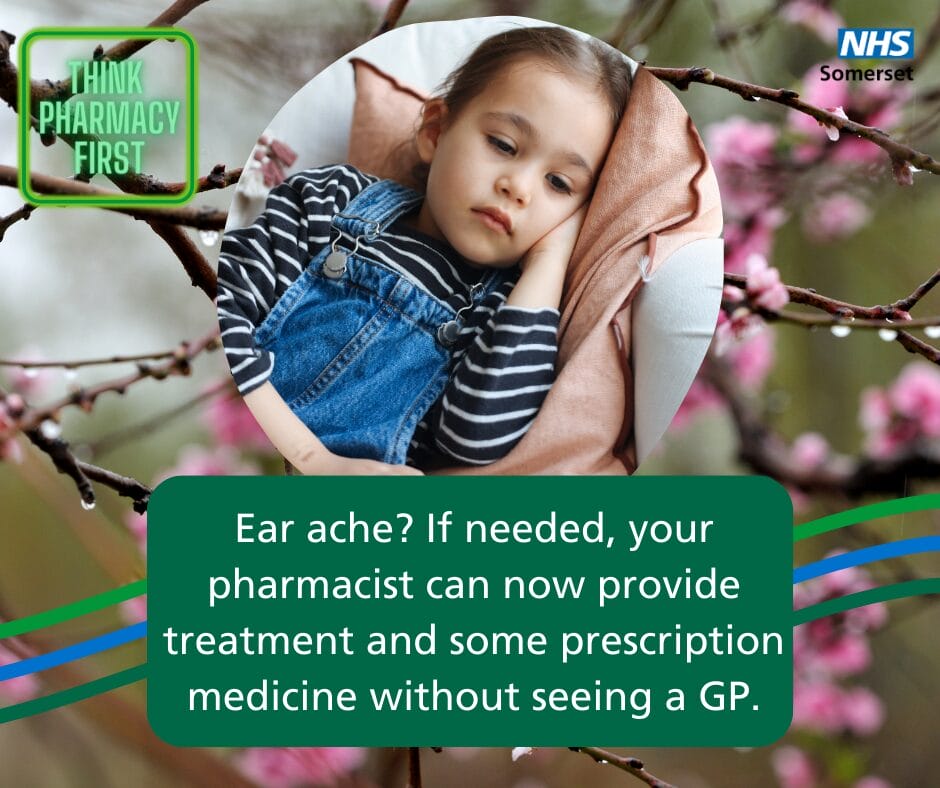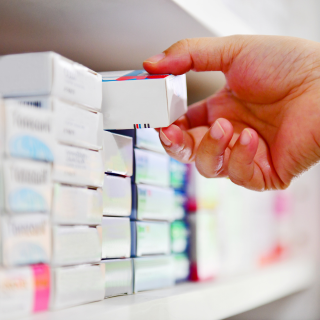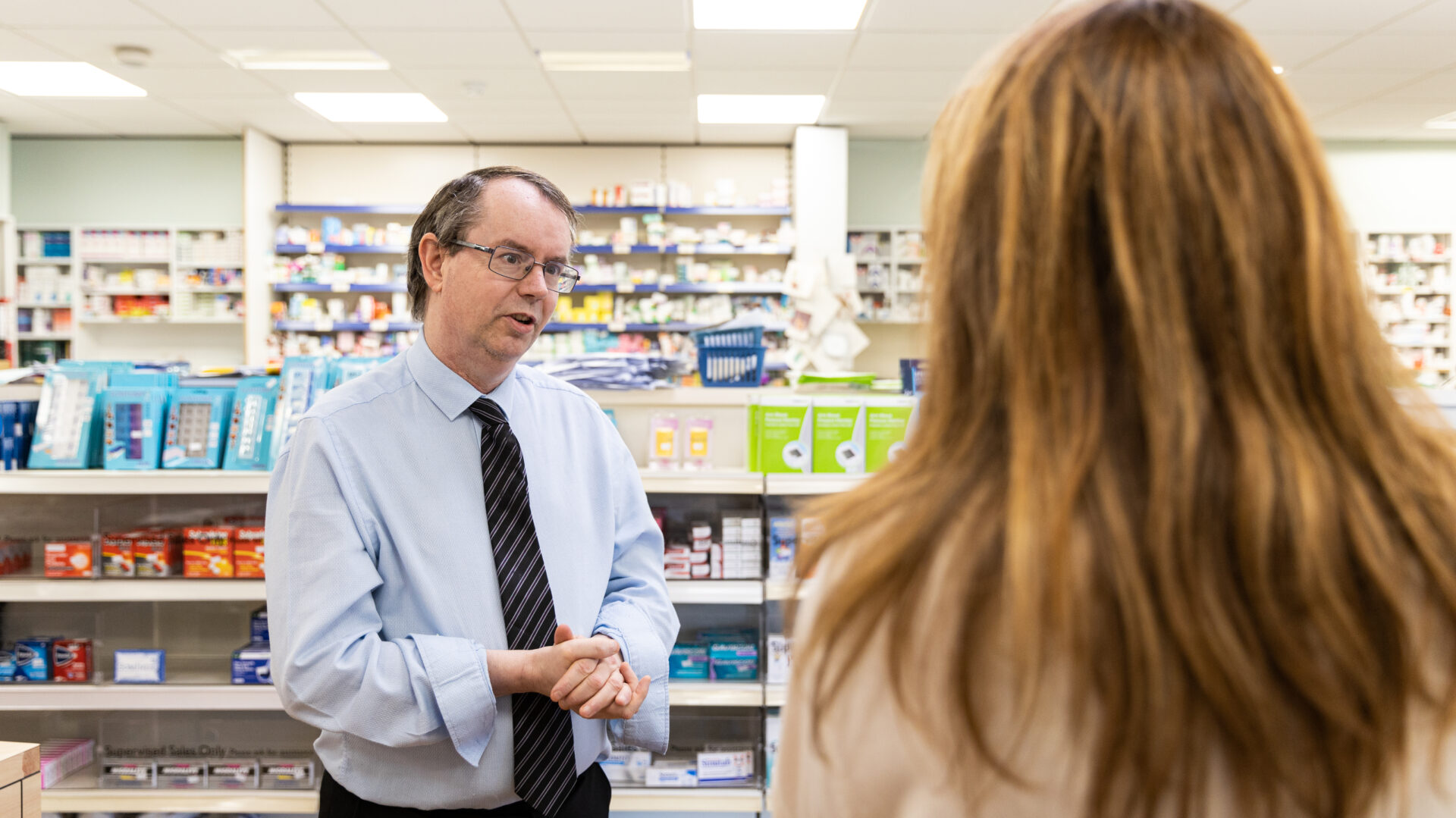Pharmacy First
Pharmacy First makes it easier for the public to get prescription medicines for seven common minor conditions.

Visit your Pharmacy First
Patients can now get treatment for seven common conditions directly from their local pharmacy. This includes prescription-only medicines, including antibiotics and antivirals where clinically appropriate, to treat seven common health conditions without the need to visit a GP.
Residents who are registered with a Somerset GP, can pop down to their local pharmacy for help with seven minor conditions which would previously have required a GP appointment. At the pharmacy patients will be able to have a private consultation about their condition, be offered clinical advice and if needed, will be offered NHS medicines.
The Pharmacy First scheme was launched by the government and NHS England on 31 January 2024 to give patients quick and accessible care and ease pressure on GP services.
What are the seven common conditions?
- Sinusitis (aged 12 years and over)
- Sore throat (aged 5 years and over)
- Earache (aged 1 year to 17 years)
- Infected insect bite (aged 1 year and over)
- Impetigo - a bacterial skin infection (aged 1 year and over)
- Shingles (aged 18 years and over)
- Uncomplicated urinary tract infections in women (women aged 16 years to 64 years).
You can get treatment for these conditions by walking into the pharmacy or contacting them virtually. GP receptionists, NHS 111, and providers of emergency care will also be able to direct patients to pharmacies, that offer the service, if contacted.
What will happen when I arrive at the pharmacy?
The pharmacist will be able to speak to you privately in a separate consultation room.
They may perform an examination or ask to access your medical records.
The pharmacist will be able to recommend the best course of action on an individual patient basis, including by issuing prescriptions for antibiotics or antivirals where necessary.
If your pharmacist thinks you need to see another healthcare professional, they will help arrange it.
The pharmacist will also ensure your medical record is updated with the outcome of your consultation, with your permission.
Why visit your local pharmacy?
- You don’t need to make an appointment to see your pharmacist.
- Your local pharmacy will have a consultation room allowing for privacy.
- By visiting a pharmacist first, it helps to make more GP and emergency appointments available for people with more complex healthcare needs.
- Many illnesses can be treated with over-the-counter medicines and advice from your pharmacy.
- A pharmacist will signpost you quickly to the right medical care if you have anything more serious.
- A pharmacist can advise on how long you can expect to experience symptoms for.
What other conditions can pharmacies help with?
Your local pharmacist can help with allergies, athlete's foot, insect bites and stings, common cold, cold sores, conjunctivitis. constipation, coughs, cystitis, decongestants, diarrhoea, dry skin, earache, earwax, fever (children and adults), flu, haemorrhoids, hayfever, headaches and migraines, heartburn and indegestion, mouth ulcers, nappy rash, oral thrush, pain, scabies, sore throat, sprains and strains, sunburn, teething, threadworms, thrush and warts and verrucas.
Pharmacists can:
- dispense medicine on prescription
- dispense repeat prescriptions without the need to visit your GP
- give advice on treating common ailments like coughs and colds
- help you manage long-term conditions such as diabetes and asthma
- give advice on medication, including if you’re taking medicine for lots of different conditions
- give advice on staying healthy
- give sexual health and contraception advice
- provide treatments for common ailments like head lice and athlete’s foot.
Many also offer free emergency contraception including the morning after pill.
Pharmacists are often open late and on weekends, and there are always some open over Bank Holidays.

By thinking ‘Pharmacy First’, people in Somerset will find it easier and quicker to get the help they need for seven common minor conditions and bypass the 8am rush to book an appointment with their GP.



